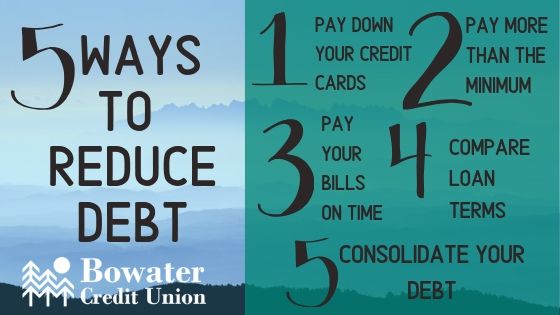
It is important to understand the details of your debt before you can negotiate with debt collectors. Once you have this information, you can craft a realistic proposal. You can also dispute the debt and ask for the name of the original creditor. Also, you can request written verification of your debt. There are common mistakes debt collectors make in trying to negotiate.
Negative aspects to negotiating with debt collectors
When negotiating with a debt collector, the first step is to be prepared with realistic information. The debt collector may want to try to pressure you into a payment plan that is not realistic. This will only delay the inevitable default, and it will also hurt your credit report. To get your money, debt collectors may also resort to emotional tactics. Be calm and professional. Next, you should present your financial situation rationally to convince the debt collector that they will accept the terms of settlement.
The next step in negotiating with a debt collector is to speak with the original creditor. It is important that you contact the original creditor who hired the collection agent. Sometimes the original creditor will be willing to negotiate, and may even accept lower payments. You can also negotiate the interest rate of your debt. This can reduce the total amount due.

How to negotiate
It is important to understand the tactics used by debt collectors before you start negotiations with them. They often try to get more money than they're owed. Negotiating debt is about getting them to accept a amount you can afford. It is important to not give them any personal information such as income or other financial obligations.
It's not unusual for debt collectors asking you to confirm you owe money. This information should not be confirmed. Fraudsters are known to impersonate debt collectors, and then use that information to steal your identity. Remember to always remain calm and respectful and make sure that you maintain a record of all communications. Avoid sharing personal information that could be used against or misused if your debt is not paid. You can seek out national debt relief assistance if you aren't able to fully pay your debt.
Avoid the common mistakes made in debt collection
Negotiating with creditors can be one of the most efficient ways to reduce your debt. You must avoid the common mistakes that debt collectors make if you wish to negotiate effectively. Remember that debt collectors are only out to get as much money as possible. It is crucial to not let them harass you or threaten your safety. They understand that consumers who are under pressure tend to make mistakes and use this knowledge to their advantage.
A debt collector might seem to be the only one who has all the cards. However, as a debtor you have legal protections. For instance, you are protected under several federal and state laws, including the Fair Debt Collection Practices Act. This law will ensure that your rights are protected and may even allow you to recover money you owe. These laws can be avoided by negotiating directly with your creditors. You can avoid these mistakes and save money.

Negotiating with debt collectors requires some preparation
It is important to have a realistic budget before you can negotiate with debt collectors. Sometimes debt collectors will pressure you into agreeing to a payment schedule that is not financially feasible. This will only delay default and harm your credit rating. Additionally, you may not be in the best interest to pay off all your debts at once.
The next step after you have established your financial situation is to learn how to negotiate. Know what you are willing to accept and how much you will pay. While it might be tempting to accept the highest possible offer, it is best if you start with a lower offer. 25% of the outstanding balance would be a good starting point. This way, you can negotiate with the creditor until you reach a reasonable amount. It is important to be patient with the creditor during negotiations. If you are not happy with the creditor’s offer, you might need to call their customer support department to request a supervisor.
FAQ
How can rich people earn passive income?
There are two main ways to make money online. One is to create great products/services that people love. This is called earning money.
The second is to find a method to give value to others while not spending too much time creating products. This is called "passive" income.
Let's imagine you own an App Company. Your job is to develop apps. But instead of selling them directly to users, you decide to give them away for free. It's a great model, as it doesn't depend on users paying. Instead, your advertising revenue will be your main source.
To help you pay your bills while you build your business, you may also be able to charge customers monthly.
This is how internet entrepreneurs who are successful today make their money. Instead of making things, they focus on creating value for others.
How can a beginner generate passive income?
Start with the basics. Learn how to create value and then discover ways to make a profit from that value.
You may have some ideas. If you do, great! You're great!
You can make money online by looking for opportunities that match you skills and interests.
There are many ways to make money while you sleep, such as by creating websites and apps.
If you are more interested in writing, reviewing products might be a good option. Or if you're creative, you might consider designing logos or artwork for clients.
No matter what focus you choose, be sure to find something you like. If you enjoy it, you will stick with the decision for the long-term.
Once you find a product/service you love helping people buy, it's time to figure out how you can monetize it.
There are two main approaches to this. You can charge a flat price for your services (like a freelancer), but you can also charge per job (like an agency).
Either way, once you have established your rates, it's time to market them. This includes sharing your rates on social media and emailing your subscribers, as well as posting flyers and other promotional materials.
These three tips can help increase your chances to succeed when you promote your company:
-
Be a professional in all aspects of marketing. You never know who could be reading and evaluating your content.
-
Know what your topic is before you discuss it. False experts are unattractive.
-
Do not spam. If someone asks for information, avoid sending emails to everyone in your email list. For a recommendation, email it to the person who asked.
-
Use a good email service provider. Yahoo Mail or Gmail are both free.
-
Monitor your results: Track how many people open your messages and click links to sign up for your mailing list.
-
You can measure your ROI by measuring the number of leads generated for each campaign and determining which campaigns are most successful in converting them.
-
Get feedback - ask friends and family whether they would be interested in your services, and get their honest feedback.
-
Different strategies can be tested - test them all to determine which one works best.
-
Keep learning - continue to grow as a marketer so you stay relevant.
Why is personal finances important?
Personal financial management is an essential skill for anyone who wants to succeed. We live in a world that is fraught with money and often face difficult decisions regarding how we spend our hard-earned money.
So why do we put off saving money? Is it not better to use our time or energy on something else?
The answer is yes and no. Yes, as most people feel guilty about saving their money. Because the more money you earn the greater the opportunities to invest.
As long as you keep yourself focused on the bigger picture, you'll always be able to justify spending your money wisely.
To become financially successful, you need to learn to control your emotions. Negative thoughts will keep you from having positive thoughts.
You may also have unrealistic expectations about how much money you will eventually accumulate. This could be because you don't know how your finances should be managed.
Once you have mastered these skills you will be ready for the next step, learning how budgeting works.
Budgeting is the practice of setting aside some of your monthly income for future expenses. Planning will save you money and help you pay for your bills.
Now that you are able to effectively allocate your resources, you can look forward to a brighter future.
What is personal financing?
Personal finance involves managing your money to meet your goals at work or home. This includes understanding where your money is going and knowing how much you can afford. It also involves balancing what you want against what your needs are.
These skills will allow you to become financially independent. This means that you won't have to rely on others for your financial needs. You won't have to worry about paying rent, utilities or other bills each month.
It's not enough to learn how money management can help you make more money. You'll be happier all around. Positive financial health can make it easier to feel less stressed, be promoted more quickly, and live a happier life.
So who cares about personal finance? Everyone does! Personal finance is one of the most popular topics on the Internet today. Google Trends indicates that search terms for "personal finance” have seen a 1,600% increase in searches between 2004-2014.
People today use their smartphones to track their budgets, compare prices, build wealth, and more. You can read blogs such as this one, view videos on YouTube about personal finances, and listen to podcasts that discuss investing.
In fact, according to Bankrate.com, Americans spend an average of four hours a day watching TV, listening to music, playing video games, surfing the Web, reading books, and talking with friends. This leaves just two hours per day for all other important activities.
When you master personal finance, you'll be able to take advantage of that time.
What's the best way to make fast money from a side-hustle?
If you want to make money quickly, it's not enough to create a product or a service that solves an individual's problem.
Also, you need to figure out a way that will position yourself as an authority on any niche you choose. This means that you need to build a reputation both online and offline.
Helping people solve problems is the best way build a reputation. So you need to ask yourself how you can contribute value to the community.
Once you've answered the question, you can immediately identify which areas of your expertise. There are many online ways to make money, but they are often very competitive.
But when you look closely, you can see two main side hustles. The first type is selling products and services directly, while the second involves offering consulting services.
Each approach has pros and cons. Selling products and services provides instant gratification because once you ship your product or deliver your service, you receive payment right away.
The flip side is that you won't be able achieve the level you desire without building relationships and trust with potential clients. These gigs are also highly competitive.
Consulting allows you to grow and manage your business without the need to ship products or provide services. However, it can take longer to be recognized as an expert in your area.
In order to succeed at either option, you need to learn how to identify the right clientele. This requires a little bit of trial and error. It pays off in the end.
How much debt is too much?
It is essential to remember that money is not unlimited. Spending more than what you earn can lead to cash running out. This is because savings takes time to grow. If you are running out of funds, cut back on your spending.
But how much is too much? There's no right or wrong number, but it is recommended that you live within 10% of your income. That way, you won't go broke even after years of saving.
This means that, if you have $10,000 in a year, you shouldn’t spend more monthly than $1,000. If you make $20,000 per year, you shouldn't spend more then $2,000 each month. And if you make $50,000, you shouldn't spend more than $5,000 per month.
It's important to pay off any debts as soon and as quickly as you can. This includes student loans, credit card debts, car payments, and credit card bill. Once these are paid off, you'll still have some money left to save.
You should also consider whether you would like to invest any surplus income. If you decide to put your money toward stocks or bonds, you could lose money if the stock market falls. However, if the money is put into savings accounts, it will compound over time.
Consider, for example: $100 per week is a savings goal. This would add up over five years to $500. After six years, you would have $1,000 saved. In eight years, your savings would be close to $3,000 It would take you close to $13,000 to save by the time that you reach ten.
You'll have almost $40,000 sitting in your savings account at the end of fifteen years. Now that's quite impressive. But if you had put the same amount into the stock market over the same time period, you would have earned interest. Instead of $40,000 you would now have $57,000.
It is important to know how to manage your money effectively. A poor financial management system can lead to you spending more than you intended.
Statistics
- While 39% of Americans say they feel anxious when making financial decisions, according to the survey, 30% feel confident and 17% excited, suggesting it is possible to feel good when navigating your finances. (nerdwallet.com)
- As mortgage rates dip below 7%, ‘millennials should jump at a 6% mortgage like bears grabbing for honey' New homeowners and renters bear the brunt of October inflation — they're cutting back on eating out, entertainment and vacations to beat rising costs (marketwatch.com)
- 4 in 5 Americans (80%) say they put off financial decisions, and 35% of those delaying those decisions say it's because they feel overwhelmed at the thought of them. (nerdwallet.com)
- According to a June 2022 NerdWallet survey conducted online by The Harris Poll. (nerdwallet.com)
- According to the company's website, people often earn $25 to $45 daily. (nerdwallet.com)
External Links
How To
How to Make Money online
Today's methods of making money online are very different from those used ten years ago. The way you invest your money is also changing. There are many ways that you can make passive income. But, they all require a large initial investment. Some methods are more difficult than others. But if you want to make real money online, there are some things you should consider before investing your hard-earned cash into anything.
-
Find out who you are as an investor. You might be attracted to PTC sites (Pay per Click), which pay you for clicking ads. On the other hand, if you're more interested in long-term earning potential, then you might prefer to look at affiliate marketing opportunities.
-
Do your research. Before you commit to any program, you must do your homework. Review, testimonials and past performance records are all good places to start. It is not worth wasting your time and effort only to find out that the product does not work.
-
Start small. Do not rush to tackle a huge project. Instead, you should start by building something small. This will help to you get started and allow you to decide if this type business is right for your needs. You can expand your efforts to larger projects once you feel confident.
-
Get started now! It's never too late to start making money online. Even if your job has been full-time for many years, there is still plenty of time to create a portfolio of niche websites that are profitable. All you need to get started is an idea and some hard work. So go ahead and take action today!